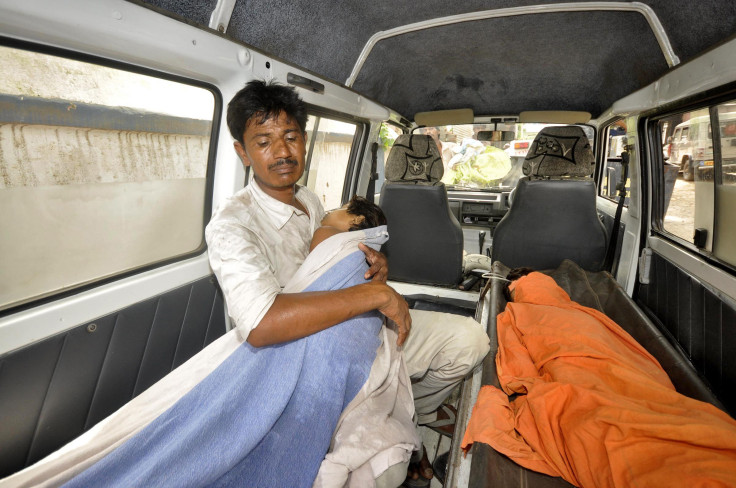Schoolchildren Food Poisoning Deaths In Bihar: Another Tragedy In India’s Poorest, Most Lawless State

Bihar, the northeastern province of India, where almost two dozen children died after eating meals tainted with deadly pesticide at their government-run school, is one of the poorest, most corrupt and backward parts of India. Bihar is so beyond the pale in terms of vice and depravity that politicians are routinely arrested and charged with murder (with few, if any, ramifications).
Widespread poverty, an undereducated populace, underpaid police, extensive criminal gangs, vigilante justice, lynching and corrupt politicians all conspire to make rural Bihar a dangerous place. Nestled between Nepal to the north and West Bengal to the south, Bihar ironically gave birth to the peaceful religion of Buddhism -- Siddhartha Gautama (the Buddha) is closely linked to the region that now encompasses Bihar and attained “enlightenment” there.
Over the centuries, however, a poisonous criminality and violence seeped into Bihar that is so deep that no one flinches when a local judge or politician is accused of committing murder or rape or other serious infractions of the law. Criminal gangs and politicians work hand in hand in Bihar and are frequently one and the same.
If the endemic corruption were not enough of a burden, Bihar is also wracked by communal violence between Hindus and Muslims, deep caste divisions and a decades-long insurgency by Maoist guerillas. Murders and kidnappings are commonplace; infrastructure is crumbling or nonexistent, and public services are dismal.
Bihar is essentially a medieval, feudal society that has somehow survived into the 21st century, in defiance of the economic prosperity found in other parts of India. A handful of powerful and wealthy land barons and businessmen control much of the land (including farms and coal/iron ore mines), often with the help of compromised police and mafia-like private armies, while the overwhelmingly majority of the people work in agriculture and barely make a living.
A report from the World Bank said that almost 40 percent of Bihar’s 90 million people live below the poverty line. The wealthy landlords have declared an all-out war against the communist rebels as well as lower-caste peoples – a group called Ranvir Sena, an extremist right-wing Hindu paramilitary organization, has carried out uncounted massacres over the decades on behalf of the business elite and landowners.
And it is this grinding poverty that often leads poor children to eat free meals provided by schools in the state. Jason Overdorf wrote in The Global Post that the “deprivation of their families made them desperate for the school's free food. Their low rank in society made it impossible for them to demand that it be prepared under safe and hygienic conditions, and ensured they went unheard when complaining of the food’s foul taste.”
A local activist named Dipu Sinha told the Global Post that the school meals are seen as “charity we're giving to these poor people,” adding that only 30 percent of the schools in Bihar had any inspection visits over the last year. “Obviously, nobody cares if these children get good food,” she added.
However, some Bihari officials chafe at the negative image of their state and insist things are changing for the better, with respect to the economy and law and order. Shyam Rajak, the state’s former food and civil supplies minister, told the Press Trust of India: “[Bihar’s economy] is growing at 14.8 percent and is at the vanguard of development. Its previous image of a lawless state is undergoing a sea change. This has put a leash on crime.”
Since taking over in 2005, the socialist-minded Chief Minister Nitish Kumar has undertaken a series of reforms in Bihar, including the construction of bridges and roads and hiring 100,000 schoolteachers. Kumar also vowed a tough program to fight crime – as a result, courts in the state have accelerated the prosecution and punishment of lawbreakers. Thousands of criminals are now languishing in prison for life, while hundreds are on death row, including some former MPs.
As for schoolchildren forced to consume poisonous meals, given the rampant state of malnutrition in rural India, such programs are a necessary evil. Over the past six months, more than 350 other Indian children have also been made sick by substandard, contaminated school food. “It's a combination of social and economic inequality,” Sinha added. “Children who access government schools now increasingly come from the poorest sections and from the lower castes. You see this kind of apathy in every government program now.”
© Copyright IBTimes 2024. All rights reserved.











